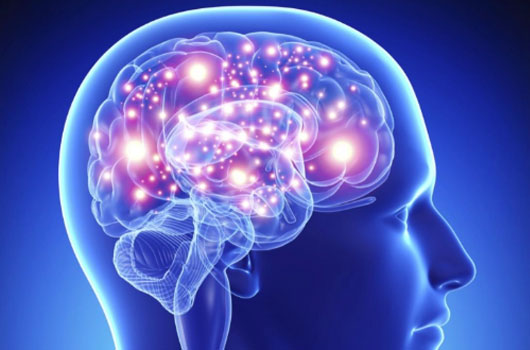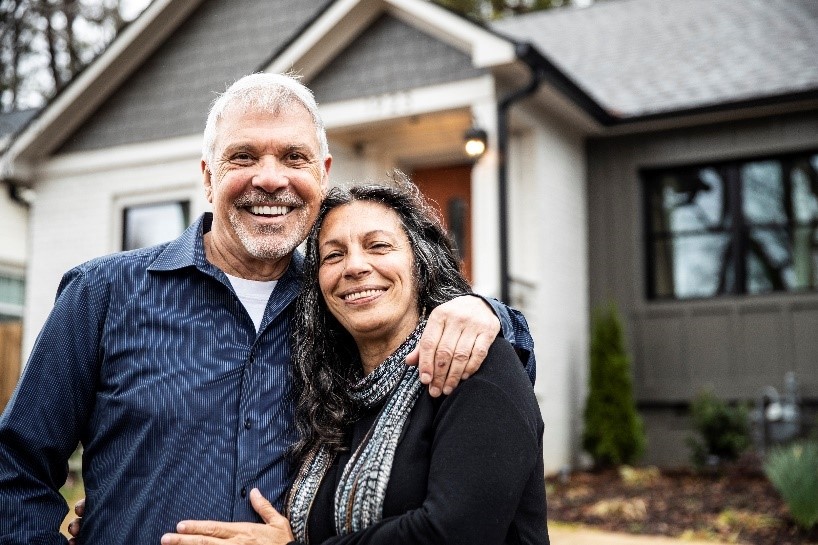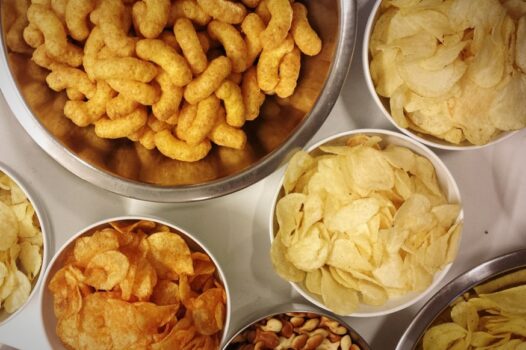GLP-1, Dopamine & Why Habit Change Isn’t Just About Willpower
What’s really going on when you know what to do — but can’t seem to do it

“I just need to try harder.”
“Why do I always sabotage myself?”
“I’ve got the plan. The app. Even the PT. Why am I still stuck?”
You’re not lazy. You’re not broken.
You’re likely running on an exhausted brain and nervous system, one that’s biologically wired to seek quick relief when you’re overwhelmed, overstimulated, or running on empty.
Here’s the good news: science is starting to explain why it feels so hard, and what you can do about it.
Let’s talk about GLP-1, dopamine, and omega-3s, and what they mean for your health, habits, and brain.
What is GLP-1?
GLP-1 (glucagon-like peptide-1) is a hormone released by your gut when you eat especially carbs and fat. It’s known for helping regulate:
- Blood sugar and insulin
- How full you feel after eating
- How slowly food leaves your stomach
- Appetite and satiety signals in the brain
But GLP-1 isn’t just about digestion. It acts on the brain’s reward system, including the dopamine pathways — the ones that control motivation, cravings, impulse control, and emotional eating.
So if you often find yourself reaching for another glass of wine, grabbing Deliveroo again, or snacking when you’re not really hungry — this might explain why.
Dopamine, Cravings, and Your “Reward Loop”
Dopamine is often called the “feel good” chemical, but that’s oversimplifying it. What dopamine really does is motivate you to seek reward — especially when you’re tired, stressed, or emotionally flat.
For people with ADHD traits, hormone shifts, or long-term stress, dopamine regulation can be completely out of balance. You may find yourself:
- Constantly craving sugar, alcohol or snacks
- Struggling to follow through on intentions
- Feeling energised by planning… but stuck in execution
- Saying, “I’ll start Monday” more often than not
This isn’t about poor discipline. It’s how your brain is trying to cope.
What the Research Says: GLP-1, Dopamine, and Behaviour
Recent studies show that GLP-1 can modulate dopamine in key areas of the brain like the nucleus accumbens, which is involved in addiction, binge eating, and habit formation.
Key Study 1:
A 2025 RCT published in Nature Medicine found that people taking semaglutide (a GLP-1 receptor agonist) had reduced brain activity in reward areas when shown high-calorie foods — and significantly less desire to overeat (Hess et al., 2025).
Key Study 2:
Another double-blind RCT found that adults with alcohol use disorder who took semaglutide reduced their drinking by over 30%, compared to those on placebo (Ekblad et al., 2023).
Key Study 3:
In people with binge-eating disorder, GLP-1 medications reduced both weight and compulsive eating symptoms — showing that habitual eating isn’t just behavioural; it’s biological (Ivezaj et al., 2024).
What This Means For You (Especially if You Have ADHD or Cognitive Overload)
GLP-1 isn’t just about appetite suppression. It’s about rebalancing the internal tug-of-war between intention and impulse, the same battle so many of my clients face every day.
If you often:
- “Know what to do” but can’t stick with it
- Crash after lunch and reach for sugar
- Feel hijacked by cravings or last-minute takeaways
- Try to “be good” during the week and unravel on weekends
- Feel like you need constant reminders to stay on track…
…you’re not alone. You’re likely experiencing a combination of dopamine dysregulation, blood sugar instability, and habit loops that weren’t designed with your brain in mind.
Enter: Omega-3s and Brain Support
There’s also strong evidence that omega-3 fatty acids, especially DHA, play a key role in:
- Brain cell structure
- Dopamine transmission
- Mood regulation
- Cognitive clarity
Supporting Research:
Patrick Holford in his latest book cites several studies linking a countries suicide, murder and depression rates to the amount of seafood they eat!!
Now having watched the Seaspiracy Netflicks Documentary and with the state of our oceans in danger I’m not suggesting we now all go out and eat more fish! But what I would love to see is people getting more omega 3 and less omega 6 (which can be done with an algae supplement).
A 2020 meta-analysis in Neurobiology of Aging found that omega-3 supplementation improved memory and cognitive function in healthy adults (Yurko-Mauro et al., 2020).
Another 2022 review suggested omega-3s may help prevent cognitive decline and support mental clarity, especially relevant for those navigating midlife stress or brain fog (Swanson et al., 2022).
As Dr. Georgia Ede, nutritional psychiatrist, explains:
“A brain without adequate omega-3s is like a house built on sand, unstable and prone to collapse under pressure.”
️ What the Experts Are Saying
Jessica McCabe (How to ADHD):
“When you learn how your brain works, you stop shaming yourself, and start supporting yourself.”
Dr. James Brown:
“Dopamine-driven habits aren’t a moral failing. They’re neurochemical patterns, and they can be changed.”
Alex Partridge (Now It All Makes Sense):
“Understanding your own patterns is the first step to building habits that actually stick.”
Richard Pink:
“You don’t need to ‘try harder.’ You need a structure that works for your brain.”
✅ So, What Can You Do?
This isn’t about cutting out everything or forcing yourself into another rigid plan.
It’s about working with your brain and body, not against them.
Try this:
- Start meals with protein and fibre to support GLP-1 response
- Add omega-3s through oily fish or supplements (especially DHA)
- Reduce friction in your routines (prep food once, use reminders, automate)
- Avoid guilt and “all or nothing” thinking, it keeps you stuck in the loop
- Track how you feel, not just what you eat
The Bottom Line
You don’t need to be stricter. You need to be smarter about how your brain works.
Habit change is easier when:
- You stabilise blood sugar
- Support dopamine naturally
- Use GLP-1–friendly strategies
- Stop shaming yourself for being tired or distracted
Want more real-life tools like this?
Sign up for my Email list where I share gentle, science-backed strategies to help you build healthy habits, even when you’re tired, distracted, or overwhelmed.
Sign Up to receive emails
Follow me here for daily insights that make change feel doable — not daunting.







